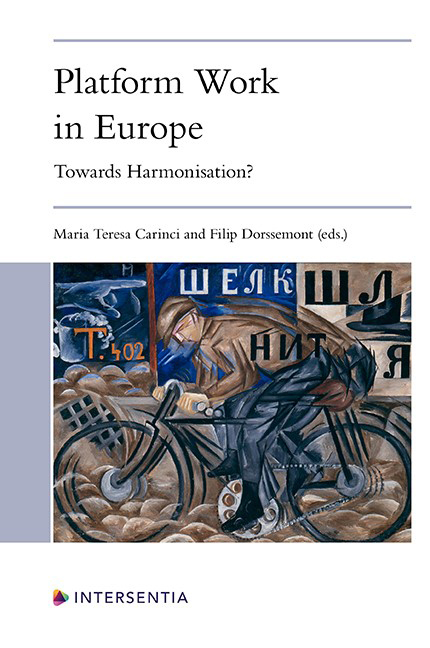‘App-Based’ Work: The German Case
Published online by Cambridge University Press: 22 February 2022
Summary
INTRODUCTION
Just as in many other countries, platform work (‘app -based work’) has also spread in Germany in recent years. This applies to both German and international platform operators. An international survey from 2017 lists 30 labour platforms that are active in Germany, 15 of which are based in Germany itself. Examples include Clickworker, Crowdguru, 99designs, Freelancer, Helpling, Lieferando, Streetspotr and Testbirds. Uber is also present in Germany with various business models, but has already discontinued its most controversial service of arranging rides through unlicensed drivers (UberPop) in 2015 due to a conflict with German public transportation law and a resulting violation of unfair competition law. The emergence of platform work, also referred to as the ‘sharing economy’ by its proponents, is welcomed by economists on the grounds of increased economic efficiency. For some years now, however, there has been growing discussion in Germany about the social risks posed by the phenomenon of platform work. This debate was initiated by the trade unions in 2012 and 2013, but reached the political level early on and has since been intensively studied in the sociology of work as well as in labour law. However, a legal definition or even regulation of platform work has not yet come about in Germany.
In view of the lack of a binding definition, for the purposes of the following, platform work – as part of the broader concept of the platform economy – is to be understood as any form of organisation of work in which the supply and demand for paid work is matched via an internet platform or a smartphone app , so that its operator, at least at first glance, only assumes the role of an intermediary. Such a definition is admittedly fuzzy at the edges. The more precisely one attempts to define platform work, however, the more complex and less catchy the paraphrases become. This is demonstrated, for example, by Eurofound's attempt at defining the elements of platform work and the U.S. Department of Commerce's criteria for ‘digital matching firms’.
- Type
- Chapter
- Information
- Platform Work in EuropeTowards Harmonisation?, pp. 29 - 56Publisher: IntersentiaPrint publication year: 2021
- 1
- Cited by

